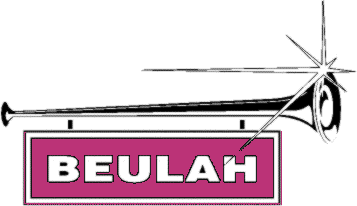|
"The Beulah
record label has always been one of the most idiosyncratic, and
therefore perhaps most interesting, of reissue marques. While the basic
character of Beulah remains the same as in its Compact Disc days, the
range of its present catalogue, driven now by the ease of downloading,
has been extended in remarkable fashion. Browsing the Beulah catalogue
is now rather like being in a 78rpm record shop: there are plenty of
recordings of short pieces available to whet your appetite for either
repertoire or artist, while at the same time there are numerous full
length works available if you wish to consolidate your collection with,
for instance, major symphonies. All of Beulah's transfers, as might be
expected of a distinguished reissue label, are of very high quality."
David Patmore writing in Classical
Recordings Quarterly
|
New for April
Many music lovers miss the sound
from vinyl pressings.
Many others have yet to discover how pleasant the sound can be.
Most of our albums are mastered from vinyl LP pressings and earlier
recordings (before 1953) from 78 rpm discs. It is our ability to
recreate, in the digital age, the sound from the disc era that many of
our customers find most enjoyable.
Unlike modern digital recordings
tracks in our
albums do contain some distortion, and the occasional surface noises,
but for many listeners these "defects" are soon forgotten.
Our albums are available from
many download and
streaming sites.
We highly
recommend downloading from  where you can download or stream in high quality, for
the
same price as iTunes medium quality. where you can download or stream in high quality, for
the
same price as iTunes medium quality.
New album
What the Critics Say
"The Beulah selection would give a Mozart novice –
perhaps someone who had been enthralled by the film Amadeus – a very
worthwhile introduction to the composer.
"Three of the pieces come in classic recordings: the
Giulini Don Giovanni is still widely considered the best; no-one has
bettered the Brain Horn Concertos and the Amadeus String Quintets with
Aronowitz rate alongside those of the augmented Grumiaux Trio. I’d
forgotten how Landowska, renowned for her harpsichord recordings, made
the modern grand piano sound as delicate as the fortepiano; on the
other hand, her rubato is oddly intrusive.
"All the transfers have come up sounding well. I
checked that of the Horn Concerto against the Warner and there’s
nothing in it – though mono and a trifle shrill in the strings, it’s
spacious mono and the effect is almost like the Breitklang technique
which EMI’s Electrola division used to apply before Decca’s Eclipse
experiments got a bad name for expanded mono
."
Brian Wilson at Musicweb
International
"The Beulah reissue is worth the price for the Cello
Concerto alone, but the other recordings add to the attraction.
Hob.XVIII/6 comes from a collection of C18 concertos on the Telefunken
label. The first release that I can find was in mono and later in
stereo in 1973, but the recording seems to date
ten years earlier. The conductor, André Rieu, was the father of the
now more famous populizer of the Strauss family.
"The Trumpet Concerto appears to have been released
in the US on the EMI Angel label and in the UK on World Record Club in
mono only. We’re not exactly short of recordings of this popular
concerto but the Beulah reissue of this still stylish performance is
welcome."
Brian Wilson at Musicweb
International
"Any comments from me are really superfluous; fans
will wish to snap up these two generous selections of Glenn Miller’s
recordings from 1939 and 1940. Miller’s way with this music may be much
imitated but the originals are extremely valuable and the sound has
come up very well considering their age and 78 rpm origin. All that’s
missing is In the Mood, but
there are plenty of recordings of that. Cue
another Beulah album? Meanwhile there’s plenty of Miller magic here
that I had never heard before."
Brian Wilson at Musicweb
International
|
